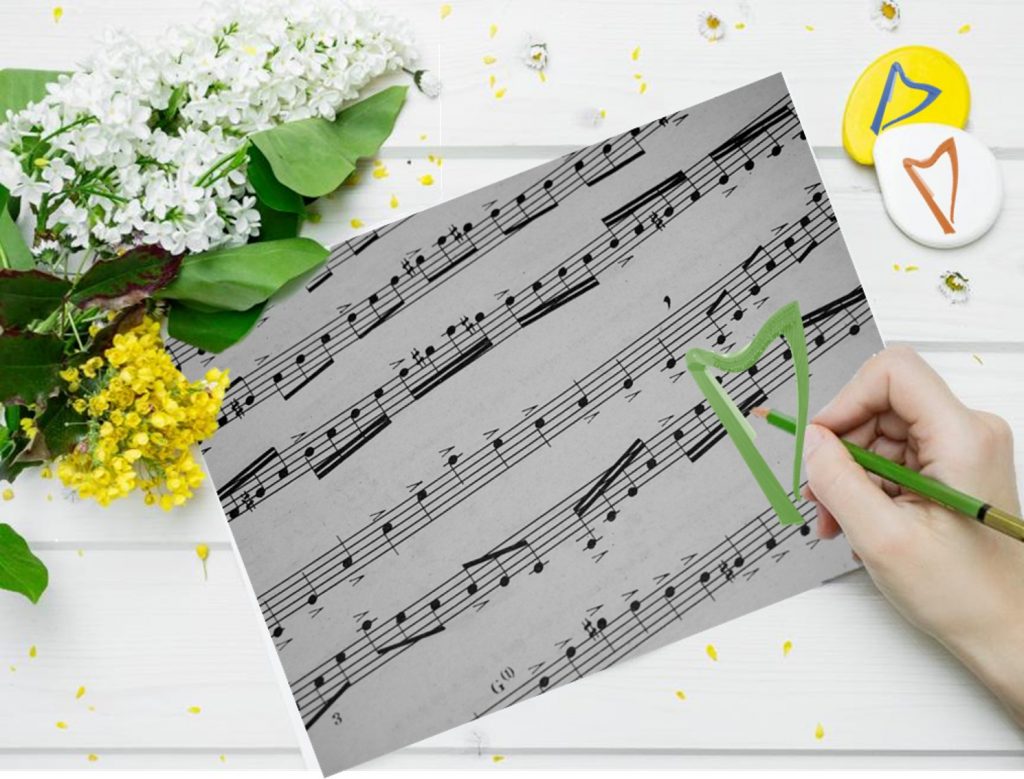Last week, we talked about why theory is good for you. But I know that not all of you believed me. So, this week, I’m going to show you that you’ve got this – but you might have to gut it out!
But what if you don’t feel the need to share your musical ideas? Do you think that leaves you off the hook? Of course not! But there is always hope and it comes in two bite sized pieces.
First, you know more theory than you know you know. At those workshops we talked about before, they handed out sheet music at the end – could you read it? I’m not quibbling over whether you’re an expert reader or if you should be sitting at the red bird reading table. You can read it! So you know those rules (or at least you know a large number of them). You also know when you play a chord that just doesn’t “fit” – that’s the rules kicking in. That “not fitting” is cultural and learned – it’s where a rules violation occurs.
 So, you know those rules. You have learned them and use them every day. And they serve you when you’re playing music written and arranged by other people. Give yourself credit! (BTW – you know that to move past the red bird table – you just need to practice your reading, right?).
So, you know those rules. You have learned them and use them every day. And they serve you when you’re playing music written and arranged by other people. Give yourself credit! (BTW – you know that to move past the red bird table – you just need to practice your reading, right?).
Yes, you can just keep at it, learning how chords come together in their various forms, finding what sorts of intervals appeal to you (and which don’t), identifying sorts of chord progressions speak to you – all of that is just various ways of getting to know the rules.
You can experiment, explore, poke around. You can thrill at sounds you love and cringe at stuff you don’t. You can use your harps as a (much loved) tool and work the music until you’re happy. You can record or make notes. And those notes can be in any form you like. I once wrote a tune on an airline napkin with a relative scale so I wouldn’t forget it. I have no idea now why I didn’t bother to sketch in the staff.
You can be a theory ninja – at your own level, for your own purposes. But what if you want to make your own arrangements? Or write them down? Well you can get out your theory book.
And whether you take the studious approach of learning theory in school or you take the hands-on approach of learning the rules doesn’t matter – as long as you learn the rules.
Regardless of your path, the point is to better understand the underlying structure of the music, it’s movement and flow, and to render the tune the way you mean to – with more ease and perhaps more confidence. The road you choose to get there should be a personal choice. The assumption is that if you “gut it out” you will work harder (and that might be true) but you may develop a deeper understanding if you feel those rules out rather than read them from a book – we all learn our own way.
Keep working on your theory – read the material and gut out the relationships – so long as you keep going! Get your theory the best way for you. Take a risk, explore, enjoy.
Comments
5 responses to “Theory Moment (redux) – Get it your way”
my brother plays jazz guitar. at a recent visit, i rented a harp and he worked with me some. whole different ballgame! NOT celtic!
so… theory depends on what modality you’re IN, too.
that said- Grainne and Billy’s arrangements are full of 7/9 chords and changing inversions.
personally, instead of telling me what theory IS, i’d like classes in how to Apply it.
i know that the 6th of the Major key = 7th in the relative minor. . nice, but how to USE that?
Getting to play together must have been great fun! Just one clarification – the theory does not depend on the modality – it holds the definition. I’ll work on a post that talks about how to use the rules 🙂 later…
Interesting that this subject pops up just as I am putting finishing touches on my very first ever tune arrangement. I tackled it without any conscious thought of music theory. In fact, had I known that there were rules, it might not have ever come to see the light of day.
I just employed the trial and error method in dealing with the accompaniment since the melody was simply straightforward. I do know I have a terrible ear for music but that is getting much better, probably because of the many workshops I do and weekly lessons. So, I’m thinking that music theory was likely active in the process and I just didn’t know it.
I’m sure that trial and error is just as fine a process as any – and it helps you be sure you thought through a whole lot of ideas…because you KNOW that rules (clearly!).
I have studied music since I was seven, but never had formal instruction in just theory. I wish I had. I am a champion music reader but lousy at playing by ear. I am trying to put the language of theory to what I hear and feel. Bit by bit, I am getting it.